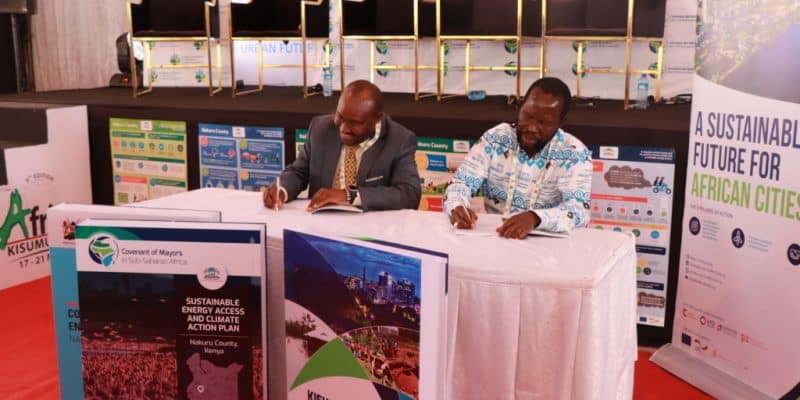With the Avitimé massif in common, the eight councils of the Kloto Division in Togo are committed to strengthening their climate resilience over the coming years through investments in sustainable development.
In Togo, the councils of Gbalave, Hanyigba, Kpadapé, Kpalimé, Tomé, Tové, Womé and Yokélé located in the Plateaux region want to pool their efforts in favour of the ecological transition. Thus, the local elected officials recently adopted the Kloto Action Plan for Energy Access and Climate (PAAEDC). This strategic document will make it possible to strengthen climate resilience in this prefecture with a population of 165 000.
In concrete terms, these local authorities of the Plateaux region intend to mobilise funds from partners such as the African Development Bank (AfDB), the West African Development Bank (BOAD) and the World Bank for the implementation of sustainable projects. For example, it will finance local youth initiatives mainly in the areas of green energy, agroecology and sanitation.
“It is our region that represents Africa in the Global Covenant of Mayors. It is therefore important that we take advantage of this aura to attract the necessary climate and energy resources to our country. Today, it is a question of creating urban forests within the populations to mitigate the heat, to sow plants that can resist global warming and to bring sustainable added value to the coffee and cocoa sector,” explains Winny Yawo Dogbatsè, the mayor of the municipality of Kpalimé, 122 kilometres from the capital Lomé.
Accelerating sustainable development
Togo’s municipalities are constantly confronted with the loss of biodiversity exacerbated by climatic hazards, notably floods and drought. In response to these climate change-related phenomena, the government of this West African country recently set up a National Committee for Sustainable Development (CNDD). The team, composed of scientists and civil society actors, will work in collaboration with local elected officials to restore forests decimated by drought and natural disasters.
Read also-TOGO: University of Lomé to host training on sustainable cities
The initiative, which is in line with the UN’s 15th Sustainable Development Goal (SDG) on the preservation of terrestrial ecosystems, is supported by the German Ministry for Economic Cooperation and Development (BMZ), the UN Food and Agriculture Organisation (FAO), the International Union for Conservation of Nature (IUCN), the World Bank, the World Resources Institute (WRI) and the World Wide Fund for Nature (WWF).
Benoit-Ivan Wansi





